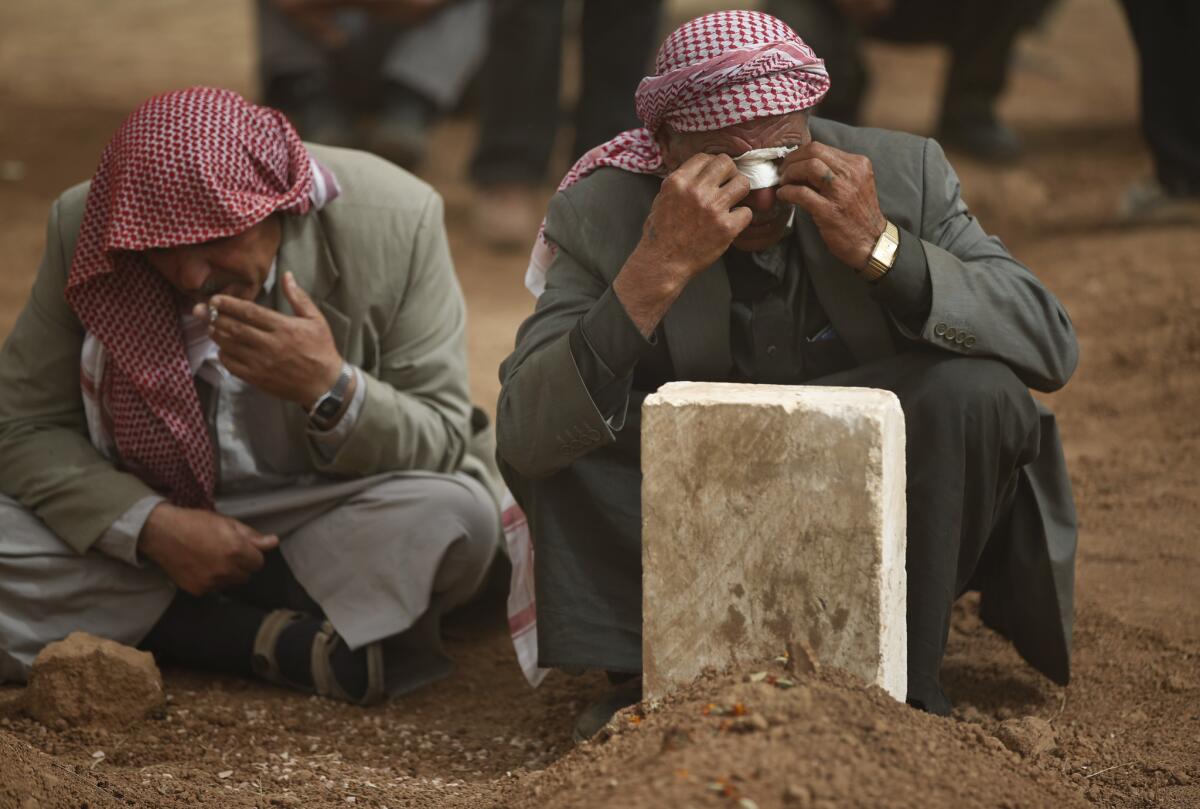Hagel says U.S. close to enlisting Turkey in Islamic State fight

- Share via
Reporting from Santiago, Chile — Defense Secretary Chuck Hagel said the U.S. was getting closer to reaching a deal with Turkey about training and equipping moderate Syrian rebels inside Turkey’s borders for the ongoing campaign against Islamic State militants.
Rebel training is already set to occur in Saudi Arabia, where the fighters will be provided with light arms and undergo about eight weeks of training on infantry tactics, calling in mortar fire, using radios and other basic skills.
On Saturday, Hagel said that Turkey was closer to agreeing to terms after John R. Allen, a retired Marine Corps general and the special envoy coordinating the U.S.-led international effort against Islamic State, arrived in Ankara, the Turkish capital, last week to persuade the government to take a more active role against the Sunni Muslim extremists.
“There was considerable progress made,” Hagel said in a press briefing alongside Chile Defense Minister Jorge Burgos on the third day of a six-day trip through South America.
Hagel added that military officials from U.S. European Command and U.S. Central Command will arrive in Turkey this week to discuss details. He also said that Allen is talking to other Arab partners to get them involved in the training program.
The Pentagon does not have an effective partner on the ground in Syria and is not in communication with any militia group. Officials hope to train and equip moderate Syrian rebels as a proxy force against Islamic State, but first must vet the groups, which will take up to eight months.
The drawn-out approach highlights growing questions about the administration’s still-evolving strategy against Islamic State, which has overrun about a third of Syria and Iraq.
Getting Turkey to train and equip rebel fighters would be a great advantage for the Pentagon, which has seen limited effectiveness in recent weeks in carrying out targeted airstrikes, particularly with the Syrian border town of Kobani. The U.S. military has carried out an aerial assault for a week, yet Islamic State militants are still threatening to take control of the town.
In addition, Turkey has been a difficult partner in the fight against the militants, so having officials there commit more to the effort would strengthen the partnership between the two countries. The Turkish army, one of the region’s strongest, has sat idly by while Islamic State militants encircle Kobani. Kurdish defenders are allied with Turkey’s longtime nemesis, the Kurdistan Workers’ Party, or PKK.
The Turks also have not allowed military aid to reach Kobani, which has triggered outrage among ethnic Kurds and led to violent demonstrations across Turkey. At least 25 people were killed in clashes, marking some of the nation’s most violent civil unrest in years, local media reported.
Follow @wjhenn for military and defense news.
More to Read
Sign up for Essential California
The most important California stories and recommendations in your inbox every morning.
You may occasionally receive promotional content from the Los Angeles Times.











